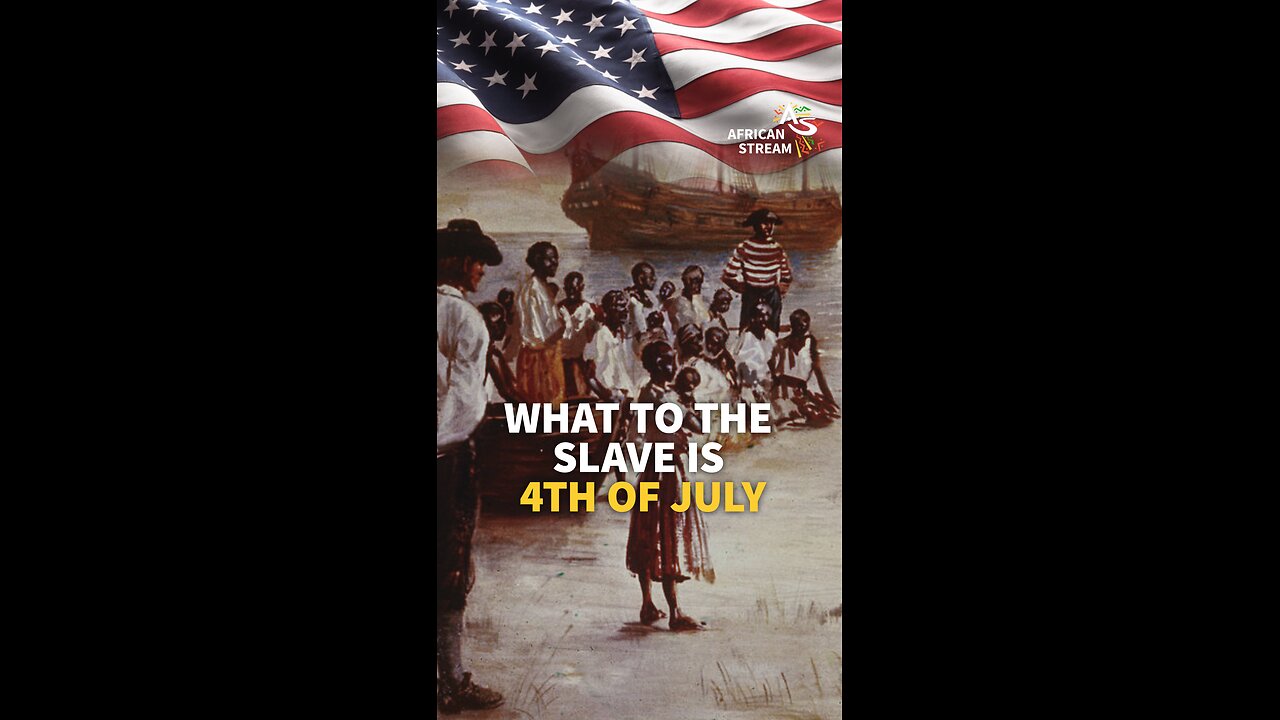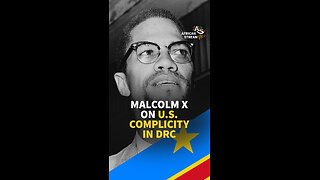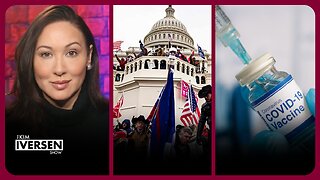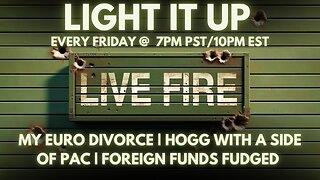Premium Only Content

WHAT TO THE SLAVE IS 4TH OF JULY
When James Earl Jones was on stage or on screen, his voice rumbled, his presentation poured forth and his craft was unmistakably powerful. The world learned Jones (1931-2024) passed away on 9 September at 93. His legacy will be remembered in how he orated monologues, such as freedom fighter Frederick Douglas’s speech, ‘What to the Slave Is Your 4th of July,’ during a 5 July 2004 performance of Voices of a People’s History of the United States.
In the speech Douglass gave to the Rochester Ladies Anti-Slavery Society in 1852 in New York, he chastised the United States’ biggest holiday, the Fourth of July, a day marking US independence from Britain. Despite the Declaration of Independence being predicated upon ‘equality of men,’ Africans remained slaves until 1865. What freedom then, Douglass asks, is there to celebrate?
Frederick Douglass was born in 1818 on a plantation owned by then Maryland governor and US senator Edward Lloyd V. He escaped at age 20, and dedicated his life to fighting for abolition of slavery. He was a dedicated reader and powerful orator. He wrote hundreds of essays, a novel, three autobiographies and thousands of speeches.
When the civil war broke, Douglass lobbied President Lincoln to free and arm all enslaved Africans. ‘End slavery right now. Free them and arm them. They know the South far better than anyone else.’ It is argued that had Lincoln’s administration heeded the advice earlier, the war would have been concluded sooner.
Douglass’ words, like many of our ancestors’, ring as true today as it did then. The United States is still divided along racial lines. Africans in the United States are disenfranchised economically, with the average African household being 10 times less wealthy than their white counterparts. The gap is only widening. What then, as Douglass asked, is the 4th of July to a slave?
Video credit: @democracynow
-
 0:36
0:36
AfricanStream
1 day agoMALCOLM X ON U.S. COMPLICITY IN DRC
1421 -
 1:21:55
1:21:55
Kim Iversen
14 hours agoMultiple States To BAN mRNA Vaccines | They Want to Make Protesting Illegal, Here's How
83.7K118 -
 7:34:25
7:34:25
Dr Disrespect
21 hours ago🔴LIVE - DR DISRESPECT - WARZONE - IMPOSSIBLE TRIPLE THREAT CHALLENGE
223K33 -
 1:02:45
1:02:45
Tundra Tactical
11 hours ago $29.09 earned🛑 KASH PATEL NEW ATF DIRECTOR??? Breaking News!!!! 🛑
87.3K13 -
 4:31:10
4:31:10
I_Came_With_Fire_Podcast
21 hours agoMy EURO Divorce | HOGG with a side of PAC | Foreign FUNDS Fudged
53K8 -
 37:44
37:44
Glenn Greenwald
18 hours agoGlenn On Tearing Down the Military Industrial Complex, Exposing Pro-Israel Indoctrination, and More | SYSTEM UPDATE #411
131K136 -
 4:04:20
4:04:20
Nerdrotic
17 hours ago $55.57 earnedAmazon Takes 007! Hollywood is Lost, Disney Cancels WHO? | Friday Night Tights 342 /w ItsAGundam
190K53 -
 43:27
43:27
Tucker Carlson
16 hours agoRay Dalio: America’s Hidden Civil War, and the Race to Beat China in Tech, Economics, and Academia
195K201 -
 56:56
56:56
Candace Show Podcast
17 hours agoEXCLUSIVE: Taylor Swift Will Be Deposed. | Candace Ep 150
237K175 -
 1:03:52
1:03:52
IsaacButterfield
14 hours ago $10.07 earnedRepublican Vs 25 Transgender Activists | Jewish Outrage | Lizzo Loses All the Weight
81K21